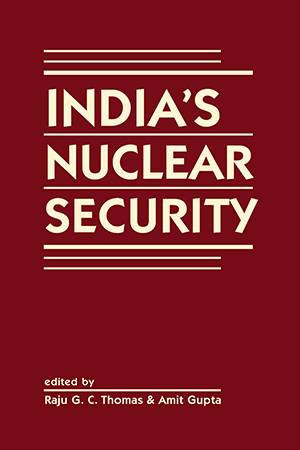Raju G. C. Thomas & Amit Gupta, editors
The nuclear weapons and ballistic missile tests conducted by India and Pakistan in the late 1990s have substantially altered the security environment, both in the region and globally. Examining the complexities, controversies, and dynamics of this new strategic context, India's Nuclear Security explores India's motivations for becoming a nuclear weapons state, its proposed nuclear and missile force structure, the nuclear doctrine that the BJP-led government seeks to develop, and the impact of a nuclear arms race on the country's economy. The authors also consider the prospects for regional and global arms control. At question is the claim of many Indian strategists that stability in the region is better served under conditions of declared—rather than covertly developed—nuclear weapons.
Raju G. C. Thomas is Allis-Chalmers Professor of International Affairs at Marquette University. His numerous publications include South Asian Security in the 1990s and Democracy, Security, and Development in India. Amit Gupta is associate professor of political science at Stonehill College. He is author of Building an Arsenal: The Evolution of Regional Power Force Structures.
No rights in South Asia"An important contribution to the understanding of the dynamics of nuclear proliferation on the subcontinent."—M. Ehsan Ahrari, Contemporary Security Policy
"The most sophisticated coverage of the multifarious implications of the Indian nuclear tests of 1988.... The Thomas-Gupta work provides detailed and sophisticated perspectives now that the genie is out of the bottle."—Choice
"A consistently thoughtful text which not only raises but carefully evaluates the questions which have arisen."—Fiona Simpson, International Affairs
"Among the various new and often excellent analyses of nuclear developments in South Asia, India's Nuclear Security is the place to begin. In avoiding the arcane, it is accessible to the novice, but at the same time, it commands the attention of the specialist with hard data and analytical insight."—Robert L. Hardgrave, Jr.








